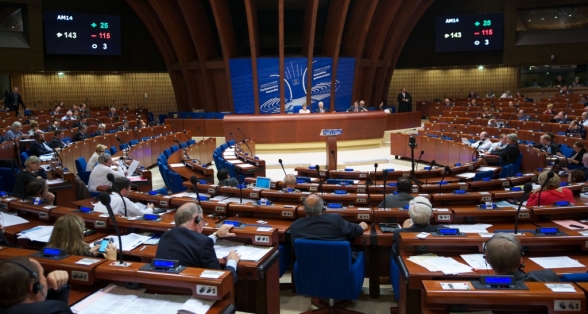On the final day of the Autumn Session of the Parliamentary Assembly of the Council of Europe, there was a debate on the provision of optimal treatment and services for people affected by breast cancer throughout Europe and on the rights of children in the context of international migration i.e. alternatives for detention of migrant children.
The Assembly urged the member states to provide all breast cancer patients with a quality-assured diagnosis and treatment, wherever their place of residence. In a unanimously adopted Resolution, which is composed on the basis of the Report of Stella Kyriakides, it is stressed that women should have access to regular mammography in the country in which they live, as well as that they should be provided with accurate information about all of the benefits and risks of these examinations and treatment programs. Parliamentarians stressed that the activities of states shall not be limited to monitoring and treatment of disease, but it is necessary to prohibit any form of discrimination against people affected by breast cancer, particularly in the field of employment and insurance. According to the text adopted, breast cancer is still the most common cancer in European women and has the highest mortality of any cancer in women.
Committee on Social Affairs, Health and Sustainable Development, for the second year in a row, organized a thematic session aimed at detailed informing of parliamentarians about the disease of breast cancer. It was emphasized that an increasing number of countries is organizing in October certain activities marking the month of breast cancer.
On the final day of the session, the parliamentarians discussed the rights of children in the context of international migration, i.e. alternatives for detention of migrant children. According to the Resolution and Recommendation adopted after discussion, it is highlighted that migrant children are primarily children and should never be detained only on the basis of their migration status, since thus their mental and physical development and health are undermined. Detention of children violates their rights and denies the possibility of general education and health care. The Assembly stressed the need to develop alternative solutions that could be implemented instead of detention. In this regard, the Parliamentary Assembly of the Council of Europe called on the Member States that have not yet taken adequate measures to address this issue, to stop the practice of detaining migrant children and promote the use of alternative measures in order to protect the best interests of the child.








